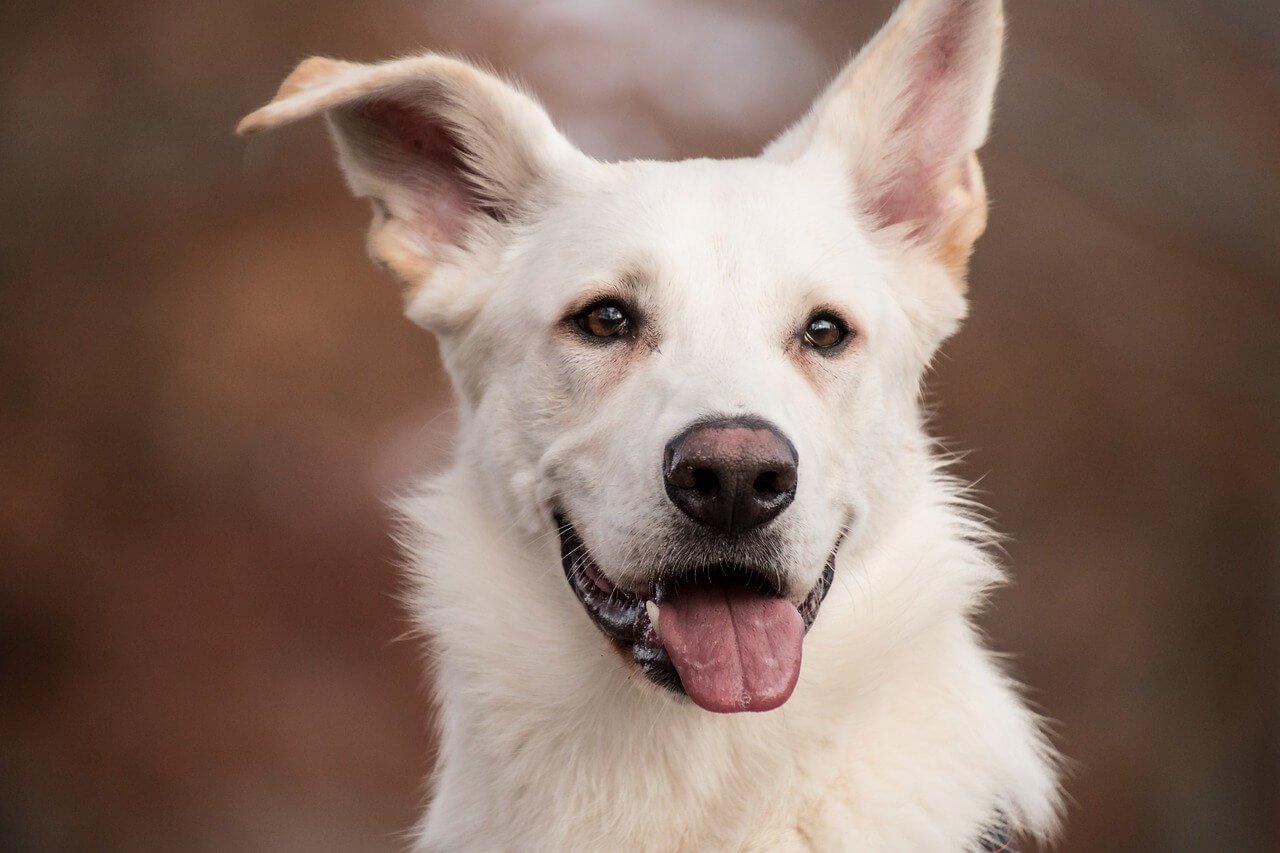Is Grain-Free Good for Dogs? Separating Fact from Fiction
The popularity of grain-free dog food has surged in recent years, driven by pet owners seeking healthier options for their furry companions. But is grain-free truly better for dogs, or is it just a marketing trend? While some claim that grain-free diets mimic a dog’s ancestral diet and reduce allergies, others warn about potential health risks, such as heart disease linked to certain grain-free formulas. As a responsible pet owner, it’s essential to weigh the pros and cons before making dietary changes for your dog.
In this blog post, we’ll explore the science behind grain-free diets, their benefits and drawbacks, and whether they’re the right choice for your pup. By the end, you’ll have a clearer understanding of whether grain-free food is a good fit for your dog’s nutritional needs.
Potential Benefits of Grain-Free Dog Food
Grain-free dog food can offer several advantages, depending on your dog’s individual needs and health conditions. Here are some of the potential benefits associated with grain-free diets:
Suitable for Dogs with Grain Allergies:
A small percentage of dogs may have sensitivities or allergies to grains like wheat, corn, or soy, making grain-free options a safer alternative.Mimics Ancestral Diets:
Grain-free foods often use ingredients like sweet potatoes, peas, and lentils, which align more closely with what wolves (dogs’ ancestors) might eat in the wild.May Improve Digestive Health:
Some dogs experience better digestion when switching to grain-free diets, particularly if they struggle with bloating or gas.Higher Protein Content:
Many grain-free formulas emphasize protein-rich ingredients, which can support muscle development and energy levels.Variety in Ingredients:
Grain-free foods often include unique proteins like duck, venison, or salmon, providing diversity for picky eaters or dogs with dietary restrictions.
While these benefits appeal to many pet owners, it’s important to consider whether your dog truly needs a grain-free diet or if their current food already meets their nutritional requirements.
Potential Benefits of Grain-Free Dog Food
Grain-free dog food can offer several advantages, depending on your dog’s individual needs and health conditions. Here are some of the potential benefits associated with grain-free diets:
Suitable for Dogs with Grain Allergies:
A small percentage of dogs may have sensitivities or allergies to grains like wheat, corn, or soy, making grain-free options a safer alternative.Mimics Ancestral Diets:
Grain-free foods often use ingredients like sweet potatoes, peas, and lentils, which align more closely with what wolves (dogs’ ancestors) might eat in the wild.May Improve Digestive Health:
Some dogs experience better digestion when switching to grain-free diets, particularly if they struggle with bloating or gas.Higher Protein Content:
Many grain-free formulas emphasize protein-rich ingredients, which can support muscle development and energy levels.Variety in Ingredients:
Grain-free foods often include unique proteins like duck, venison, or salmon, providing diversity for picky eaters or dogs with dietary restrictions.
While these benefits appeal to many pet owners, it’s important to consider whether your dog truly needs a grain-free diet or if their current food already meets their nutritional requirements.
Check this guide 👉5 Best Grain-Free Dog Foods for Ultimate Health!
Check this guide 👉Top 5 Premium Hydrolyzed Dog Foods for Ultimate Health!
Check this guide 👉Top 4 Premium Beef Dog Food Options for Ultimate Nutrition!

Pros of Grain-Free Dog Food | Cons of Grain-Free Dog Food |
|---|---|
May help dogs with grain allergies | Potential link to heart disease (DCM) |
Mimics ancestral diets | Misleading marketing claims |
Supports digestive health | Higher cost compared to traditional food |
Includes diverse protein sources | Risk of nutritional imbalances |
Appeals to picky eaters | Not suitable for all dogs |
Signs Your Dog Might Benefit from Grain-Free Food
Not every dog requires a grain-free diet, but some may thrive on one. Here are signs that your dog might benefit from switching to grain-free food:
Frequent Digestive Issues:
Persistent diarrhea, vomiting, or gas could indicate a sensitivity to grains or other ingredients in their current diet.Skin Irritations or Allergies:
Itchy skin, redness, or chronic ear infections may suggest a food allergy, potentially related to grains.Low Energy Levels:
If your dog seems lethargic despite eating well, a different diet, such as grain-free, might improve their vitality.Weight Gain or Obesity:
Grain-free foods with higher protein content can help maintain a healthy weight for some dogs.Preference for Novel Proteins:
Dogs bored with chicken or beef-based diets may enjoy the variety offered by grain-free formulas featuring exotic proteins.
If you notice these signs, consult your vet to determine if a grain-free diet is worth exploring for your dog.
How to Transition to a Grain-Free Diet Safely
Switching your dog’s food requires care and patience to avoid digestive upset. Here are steps to ensure a smooth transition to a grain-free diet:
Gradual Transition:
Mix a small amount of the new food with their current food, gradually increasing the proportion over 7–10 days.Monitor for Reactions:
Watch for any adverse reactions, such as vomiting, diarrhea, or changes in behavior, during the transition period.Choose High-Quality Brands:
Opt for reputable brands that prioritize balanced nutrition and avoid excessive fillers or artificial additives.Consult Your Veterinarian:
Seek professional advice to ensure the new diet aligns with your dog’s health needs and age-specific requirements.Observe Long-Term Effects:
After the switch, monitor your dog’s energy levels, coat condition, and overall health to assess how well they’re adapting.
By following these steps, you can minimize risks and ensure your dog adjusts comfortably to their new diet.
Common Misconceptions About Grain-Free Dog Food
Many pet owners have misconceptions about grain-free dog food, often influenced by marketing or hearsay. Here are some common myths and the truth behind them:
Myth: Dogs Can’t Digest Grains:
Most dogs can digest grains perfectly well, as they have evolved to utilize carbohydrates in their diet.Myth: Grain-Free Means Healthier:
Grain-free doesn’t automatically equate to better nutrition; many traditional dog foods are just as nutritious.Myth: Allergies Are Always Caused by Grains:
True food allergies in dogs are more often caused by proteins like beef, chicken, or dairy than by grains.Myth: Grain-Free Mimics a Wild Diet:
While wolves eat primarily meat, modern dogs are omnivores and benefit from a balanced diet that includes grains.Myth: Grain-Free Prevents Obesity:
Weight gain is more closely related to calorie intake and activity levels than the presence of grains in food.
Understanding these misconceptions helps you make informed decisions about your dog’s diet rather than relying on trends or assumptions.
Tips for Choosing the Right Dog Food
Selecting the best food for your dog involves considering their unique needs and lifestyle. Here are some tips to guide your decision-making process:
Read the Ingredient List:
Look for high-quality protein sources at the top of the list and avoid foods with excessive fillers or artificial additives.Consider Your Dog’s Age and Size:
Puppies, seniors, and large breeds have different nutritional requirements, so choose a formula tailored to their life stage.Check for Nutritional Balance:
Ensure the food meets AAFCO (Association of American Feed Control Officials) standards for complete and balanced nutrition.Consult Your Veterinarian:
Your vet can recommend specific brands or formulas based on your dog’s health history and dietary needs.Observe Your Dog’s Response:
Pay attention to changes in energy, coat condition, and digestion after introducing a new food to assess its suitability.
By following these tips, you can find a dog food that supports your pet’s overall health and happiness.
Alternatives to Grain-Free Dog Food
If grain-free food isn’t the right choice for your dog, there are plenty of other options to explore. Here are some alternatives that might better suit your dog’s needs:
Limited Ingredient Diets (LID):
These diets use fewer ingredients to minimize the risk of triggering allergies or sensitivities.Novel Protein Formulas:
Foods featuring unusual proteins like kangaroo, duck, or venison can help dogs with food intolerances.High-Quality Traditional Dog Food:
Many premium brands offer grain-inclusive formulas that provide excellent nutrition without the risks associated with grain-free options.Homemade Meals:
Preparing homemade meals allows you to control ingredients, but ensure recipes are balanced and approved by a vet.Hydrolyzed Protein Diets:
These diets break down proteins into smaller molecules, making them easier to digest for dogs with severe allergies.
Exploring these alternatives ensures your dog receives the nutrients they need while avoiding potential pitfalls of grain-free diets.
Frequently Asked Questions About Grain-Free Dog Food
Is grain-free food healthier for my dog?
Not necessarily. Most dogs digest grains well, and grain-free food is only beneficial for dogs with specific allergies or sensitivities.
Can grain-free food cause heart problems?
There is an ongoing investigation into a possible link between grain-free diets and dilated cardiomyopathy (DCM), so consult your vet before making the switch.
How do I know if my dog has a grain allergy?
Symptoms include itching, skin irritation, ear infections, or digestive issues; an elimination diet or allergy testing can confirm allergies.
Are all grain-free foods the same?
No. Quality varies widely, so choose brands with high-quality ingredients and proper nutritional balance.
Should puppies eat grain-free food?
Puppies have unique nutritional needs, so consult your vet before feeding them grain-free food to ensure it supports their growth and development.
Final Thoughts: Is Grain-Free Right for Your Dog?
Deciding whether grain-free food is good for your dog depends on their individual needs, health conditions, and dietary preferences. While grain-free diets can benefit dogs with specific allergies or sensitivities, they aren’t universally superior to traditional dog food. Always consult your veterinarian before making significant changes to your dog’s diet, especially given the potential risks associated with certain grain-free formulas. Remember, the best diet for your dog is one that meets their nutritional needs, supports their overall health, and keeps them happy and thriving. With careful consideration and expert guidance, you can make the best choice for your loyal companion.
Do Cats Have Taste Buds? Best 7 Expert Tips! – Discover how cats experience flavors and why their taste is so unique.
Do Dogs Have Taste Buds? Best 7 Expert Tips! – Discover how dogs experience taste, their preferences, and what it means for their diet and health.
Can Cats Taste Sweet? Best 7 Expert Tips! – Discover why cats can’t taste sweetness, how it affects their diet, and tips to keep them healthy and happy.
Can Dogs Taste Sweet? Best 7 Expert Tips! – Discover how dogs perceive sweetness, which foods are safe, and tips to manage their sweet cravings responsibly.





